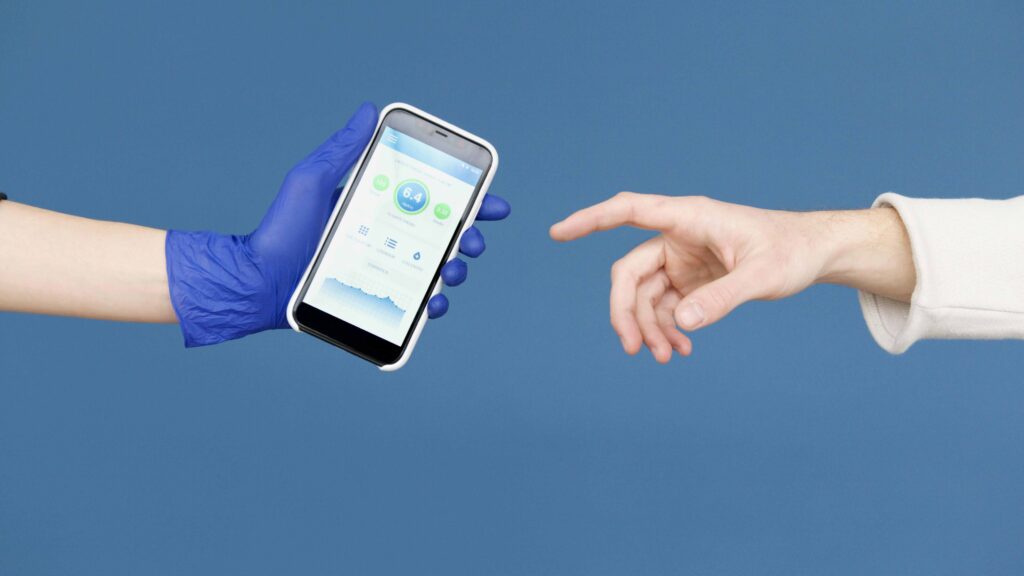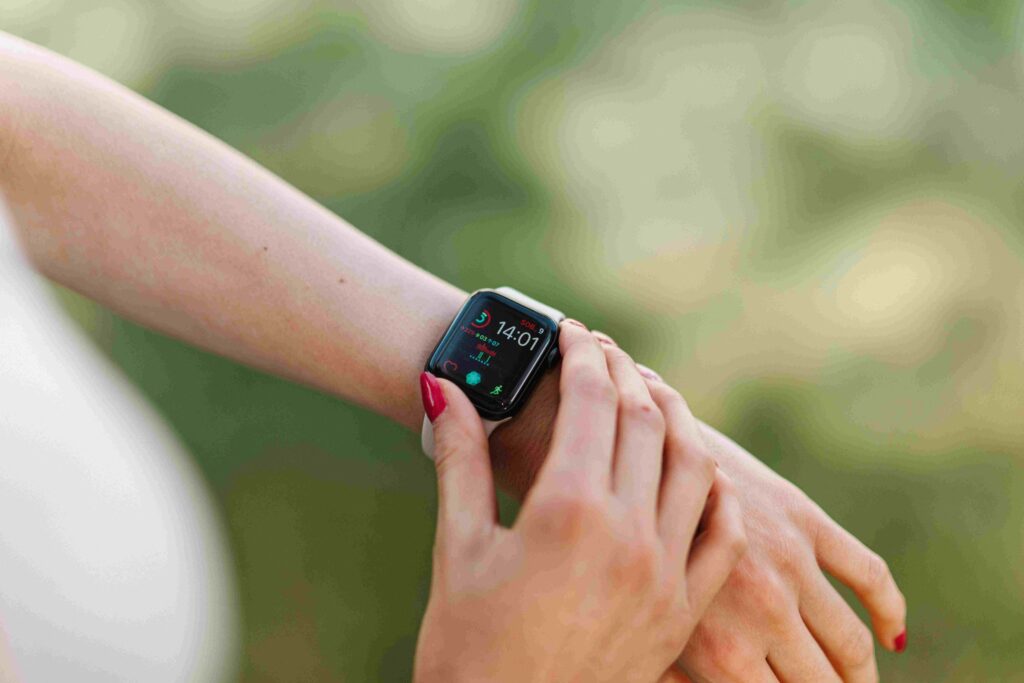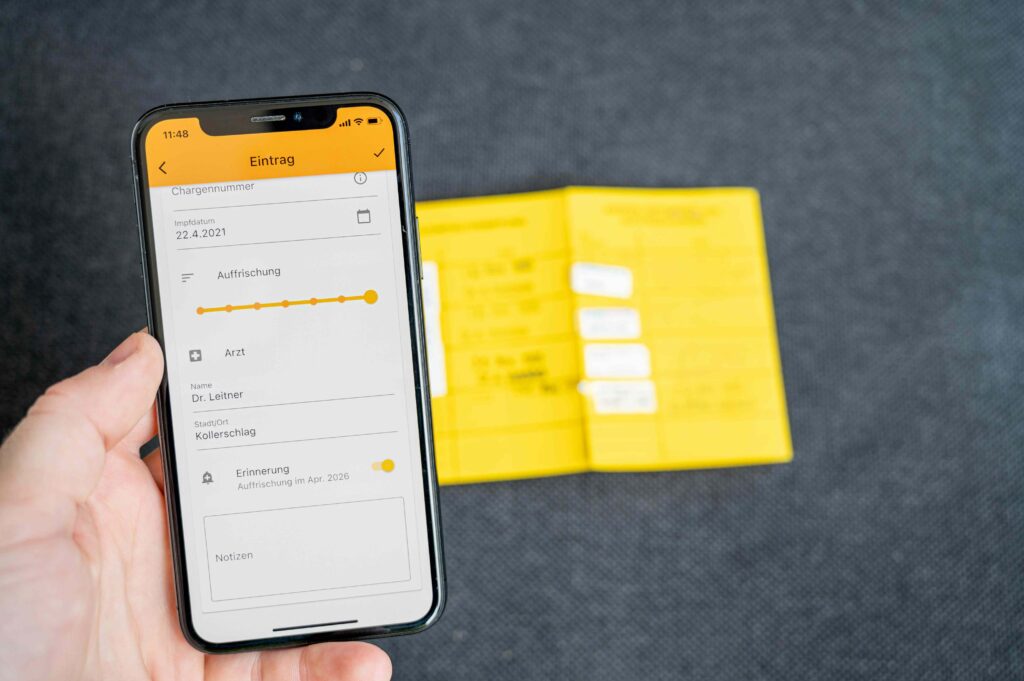Table of Contents
INTRODUCTION
It is a wonder that the modem world witnessed a quick pace in transition when it comes to how mental health care approaches are performed, greatly assisted by the use of technology. This took a toll on how digital mental health relates to the way people engage with their mental wellness.
These now include accessible and user-friendly platforms for people to maintain control over their well-being. As new mental wellness apps available have everything from managing anxiety levels to improving the quality of sleep, as in these, the true potential of digital mental health solutions is so huge as well as their benefits ranging from the accessibility of these solutions to attempts at new innovations in dealing with mental health issues.
What Is Digital Mental Health?
Digital mental health is the use of up-to-date technologies, including mobile applications and online platforms, in enhancing and supporting mental well-being. This integrates empirical evidence for psychological techniques and digital devices for instant and universal access to mental health care.
Understanding the Impact of Digital Mental Health on Well-being
The availability of digital mental health tools cannot be denied their influence. Since the innovation for applications related to mental well-being opens up wider capacities-from the reduction of stress to the improvement in the quality of sleep-many applications offer evidence-based practice that can be implemented into users’ daily life, such as mindfulness and CBT. The most significant elements amongst these features are included.
Accessibility on the go: None of these applications have time and space constraints; one can avail the same wherever and whenever.
Personalized plan and strategies: Some applications provide personalized plans and strategies, which will work in favor of the individual.
Track the improvement: The vast majority of digital mental health apps track improvement over time as the user keeps up with it.
Range of Mental Health Issues addressed: The apps are able to reach a wide range, from stress to depression or even PTSD.

Basic Components of Mental Health Applications
1. Cognitive Behavioral Therapy or CBT:
Most applications designed for mental wellness execute their principal function following the lines of a therapy called Cognitive Behavioral Therapy, or CBT. Such a therapy is one that is commonly used and has scientific evidence to enable individuals to de-stress themselves away from patterns of negative thinking and behavior that contribute to depression, anxiety, stress, and others.
With applications, people will be able to fit in the therapeutic exercises any time with digital modules of CBT. Therefore, the effectiveness of the app will be such that it aims to help people work out exercises challenging them and reframing their negative thoughts for healthier mental states and balance.
2. Mindfulness and Meditation
Mindfulness and meditation are an important best practice of digital mental health. With Headspace, Calm, and Insight Timer, guided meditations and mindfulness practices help people stay grounded, manage stress, and come ready to focus on work every day. Old practices tried long ago to enhance emotional regulation and reduce anxiety are now being applied with technological twists.
This mindfulness practice in the application can create much resilience in daily hassles and bring a flavor of serenity into their lives.
3. Mood Tracking and Journaling
Most mental wellness apps include mood-tracking where users can record feelings, causes, or thoughts they may have during the day. This may enable a user to detect any kind of pattern in their psychological state and understand factors well-being.
There are some applications, for example, Daylio or Sanvello, wherein one uses to track moods. With these there is association with journal prompts, and use of these devices encourages reflection of feelings and experiences by the user, allowing for self-awareness besides offering priceless information guiding subsequent decisions in treatment or changes in lifestyle.
Digital Mental Health and its Role in Preventative Care
This application help not only the patients who have already begun to face problems relating to their mental health but also allow prevention at much-needed aspects. Many issues related to mental health can be prevented or fade away gradually by forming intervention at an early stage before things become at significant levels.
With similar application of conventional tools for stress management, self-regulation exercises, and well-being improvement tools, these applications further make help users create healthier habits that would prevent mental health problems from deteriorating. For example, repetitious mindfulness activities or CBT practice enables patients to gain emotional strength in that they can better handle successive difficult scenarios.
Role of Community Support and Social in Online Digital Mental Health Applications
Several mental wellness apps give the illusion of community to users, and this is so essential for those who seek help. Many such apps have forums or even chat rooms or even groups where people connect to share their issues with fellow members. Such sites may be the very sources through which individuals go about sharing experiences, coping techniques, and support others.
This sense of belonging can be powerfully empowering for users who are then heard and feel supported, even if they may not have access to traditional support systems. Social support is imperative in mental health recovery, and the ability to digitally connect bridges gaps for those who might otherwise feel isolated.
Behavioral Health Coaching Personalized Support
Highly advanced applications even offer coaching on behavioral health, either through artificial intelligence or live sessions, to guide those who are on the journey of mental wellness. Such coaching works towards coaching a person to initiate goal-oriented settings of coping mechanisms and guides work involved in addressing mental health-related challenges.
Apps like BetterHelp or Talkspace can reach licensed therapists; therefore, this support is accessed directly from a smartphone or computer. All geographical location constraints, long wait times, which are common for in-person therapy, and often high costs are eliminated; thus allowing more people to have access to care.

Digital Mental Health as a Part of Everyday Life
Of course, digital mental health apps save the benefit of how easily and smoothly they can fit in with a user’s routine. Traditional therapies take hours from participants to sit through with a therapist. Beautiful about these mental wellness apps is that their sessions can be accessed in small moments of idle time during the day. This makes their use much easier, fitting with work and family life and other priorities.
They are relatively easy for users to get used to the desirable mental wellness practices at stressful moments, before sleep time, or even as part of a morning routine without too much disruption in lifestyle.
It does raise the question, though, about how this will impact the futures of care in psychology.
Over the past two years, demand for mental wellness apps has skyrocketed as people realized how precious the value of mental health care is. Continued outbreaks of the pandemic accelerated this trend because increasingly, alternative means for managing stress and anxiety are necessary for an ever-increasing proportion of the population that is on the wrong side of the social scale.
Why Mental Wellness Apps Are Rising in Popularity
Increased Mental Health Awareness Increased awareness about mental health tends to make people more open about discussing it and reduce the stigma attached to therapy or consulting.
Ease of Access and Convenience: It is easier to incorporate these applications with your life, as you are not supposed to schedule appointments and find ways to travel.
Affordability: Most of the applications are relatively less expensive compared to the traditional therapy sessions and can save money on budgets.
Confidentiality: The users are accorded professional mental health tools without compromising their privacy.
The Role of Mental Wellness Apps in Digital Mental Health
Mental wellness applications are cutting-edge as far as the digital revolution in mental health care is concerned. In the forefront, they provide several advantages that explain why they have become part and parcel of modern psychological care.
Benefits of Applying Digital Mental Health Apps
1. Convenience and Accessibility
One can now reach resources to support mental health directly from the smartphone or tablet, so it is possible to seek help at the time when one needs it the most. Apps can allow a person to attend therapy, learn mindfulness techniques, and track his mood all from the comfort of home.
2. Support Available Anytime
Mental health problems cannot operate within a 9-to-5 hour. Digital mental applications offer their users the services of 24/7. The techniques can now be exercised or help solicited when desired.
3. Anonymity and Privacy
Mental wellness apps, to those who are uncomfortable with the stigma of traditional therapy, offer a private and confidential environment through which users can get various resources along the mental health journey. This way, users can begin their journey through the mental health without fear of judgment.
4. Personal Experience
While there are many apps that use AI and machine learning, there are also many that use evidence-based practices, creating a personalized care plan for the user. Using data input by the user, content, tips, and exercises can all be targeted to meet an individual’s specific mental health needs.
5. Evidence-Based Practices
Digital mental health apps can be developed on evidence-based practices such as Cognitive Behavioral Therapy, mindfulness, and meditation. These have evidence-based practice, and their efficacy has been highly beneficial in the healing of many mental disorders.
The digital mental wellness apps can provide cheap alternatives since most of them offer free versions and affordable monthly subscriptions for sustained care.
7. Variety of Tools for Different Mental Health Needs
Apps are available that can be used to cater to different aspects of mental wellness. There are apps that are used for meditation or mindfulness purposes, for tracking moods, and others that are aimed at therapy. Such apps offer multiple tools to cater to the variety of needs.
Examples of Best Mental Wellness Apps for Digital Mental Health
There are numerous apps that have churned up in the digital mental health market, all offering different features to support mental well-being.

Headspace
The Headspace App has mindfulness and meditation for someone to reduce stress, anxiety, and sleep better. Headspace is more suitable for a beginner since it will guide you through many meditations as well as mindful eating and breathing exercises.
Calm
Another generally used mindfulness app is the Calm app, which helps in the concept of relaxation, sleep, and handling stress. It uses guided meditations, breathing exercises, and even bedtime stories to help users unwind.
Talkspace
Get virtual counseling with a licensed therapist at Talkspace, working through text, voice, and video calls. Connect with a licensed therapist who will address individuals’ mental health issues such as anxiety, depression, and relationship issues.
Woebot
Woebot is an AI-driven chatbot that applies Cognitive Behavioral Therapy when intending to enhance mental health. These daily conversations and feedback can help in tracking emotional well-being, offering instant support that is usually needed.
Sanvello
Sanvello is a combination of cognitive-behavioral therapy, mindfulness, and mood tracking. In theory, it should help users find a way to cope with stress, anxiety, and depression. It offers self-help tools, customized journeys, and licensed therapists.
How Digital Mental Health Apps Help in Overcoming Mental Health Stigma
This stigma attached to mental health has long been a stumbling block that has prevented many from seeking professional help. Digital applications for mental health, however, tend to limit such stigma since most of these offer privatized, judgment-free zones for the user to work on his or her mental wellbeing. The continuous normalization of mental health care with each new adopter serves to empower individuals to maintain their mental health, fear-free.
Future of Mental Health
Mental health care in the future lies into digital approaches. So, with the advance in technology in the future, only the best will be in mental well-being apps that are tailored and meet the specific needs of people to effect solutions on the struggle of mental health.
Integration with wearables and health tech
Future advancements may be seen in seamless integration with wearable tech, such as smartwatches, which will enable the tracking of heart rate variability, sleep patterns, and activity levels. Such insights may help to add a better understanding of the mental well-being of an individual, thereby allowing apps to offer targeted interventions.
AI and Machine Learning
AI and machine learning will control the mental wellness apps, hence allowing more accurate analytics and precise care for each user. Apps would be even more intuitive, perhaps even predict when a user needs them the most, and by real-time intervention based on the mental health journey of the users.
Working with Conventional Healthcare Providers
Advances in the legitimacy of online mental health applications indicate rises in business partnerships between developers of such applications and the conventional healthcare providers. These partnerships will, in due course, lead to an increasingly merged approach to mental health care that will integrate digital methods with in-person sessions for therapy.
Challenges and Concerns over Online Mental Health Applications
The implications and advantages of digital mental health applications aside, their integration also carries a range of challenges that require extra effort to ensure that they are effective.
Digital mental health apps are not always regulated to the same standards as mainstream medical devices, therefore bringing doubts over the safety and effectiveness of some apps. Therefore, it is essential that apps are created in conjunction with mental health professionals.
2. Privacy and Data Security
Since mental health information will be logged and stored, privacy and data protection are high stakes here. Users must be able to feel that their information is safe and not misused.
3. Access Problem
Digital apps are accessible in several ways, but not everybody has equal access to the internet or smartphone. Developers should consider the diversity of socio-economic backgrounds for the users of their respective apps.
Limitations of Digital Mental Health Apps
Even though digital mental health apps are very helpful, they are not without the limitations and challenges listed below. It pays to think about these potential challenges when you are going to include these tools in your mental wellness plan.
1. Not a Replacement for Professional Therapy
While many apps offer useful techniques-including cognitive behavioral therapy, mindfulness, or mood tracking-they do not serve as a substitute for therapeutic or medical treatment. In particular, a licensed therapist or psychiatrist should be sought for those who have major depressive disorder and bipolar disorder.
In addition, digital apps can only supplement the well-trusted traditional therapy approach and cannot replace a carefully, professionally developed care program.
2. Replaces Traditional Treatment
Indeed, these digital mental health tools can become an excellent supplement, but one has to be cautious when putting the whole reliance on these applications, as this would open one’s system to overexposure to the app. Application users are usually oblivious of the reality that they can continue using the application purely and exclusively, when in fact, for most individuals, the integration of the digital tools with therapy and social support and usual self-care practices would usually work best.
3. The Privacy Issue
The mental health apps collect sensitive user data, such as mood logs, symptoms, and personal reflections. Not all of them are good at effectiveness in their policies toward privacy; although the largest percentage of applications holds a strong privacy policy, care has to be taken on where one’s data is stored and how it is utilized. This calls for caution while choosing apps, especially with specific privacy policies that put much emphasis on protecting one’s data.

4. Access and Inclusion
Not all mental health-related digital applications can be accessed freely. Language, user interface complexity, or access to internet might be some of the problems preventing a portion of individuals from taking full advantage of such resources. Developers are working towards producing apps that are inclusive and accessible to different people, including disabled people or those who live in areas with limited access to technology.
Conclusion
No doubt, digital mental health will be part of the future of mental wellness care. Hundreds of thousands of people are now looking to mental wellness apps for this purpose; therefore, we shall soon see a revolution in how we think about emotional well-being. Digital mental health is accessible, affordable, and perfectly effective for any individual without restrictions on age, raising support for mental health as the priority in this digital age.
By accepting such digital solutions, users are empowered in the pursuit of realizing their mental health journey, which is harvested with the tool that makes a difference in life.
Of course! Here is a disclaimer you can add at the bottom of your blog titled “Digital Mental Health: The Benefits of New Mental Wellness Apps.
Disclaimer
Any information featured in this blog is for general informational purposes only and should in no way be considered to be professional medical advice. Online digital mental health applications indeed provide a useful arsenal of tools to gain control over mental health, but these are at best substitute practice for professional medical or psychological treatment. If you have mental health problems, seek a licensed mental health professional or healthcare provider. All application and software here will differ in different results to everyone. Consult your doctor before making any change in your mental health care treatment program.


2 thought on “Digital Mental Health: The Benefits of New Mental Wellness Apps”